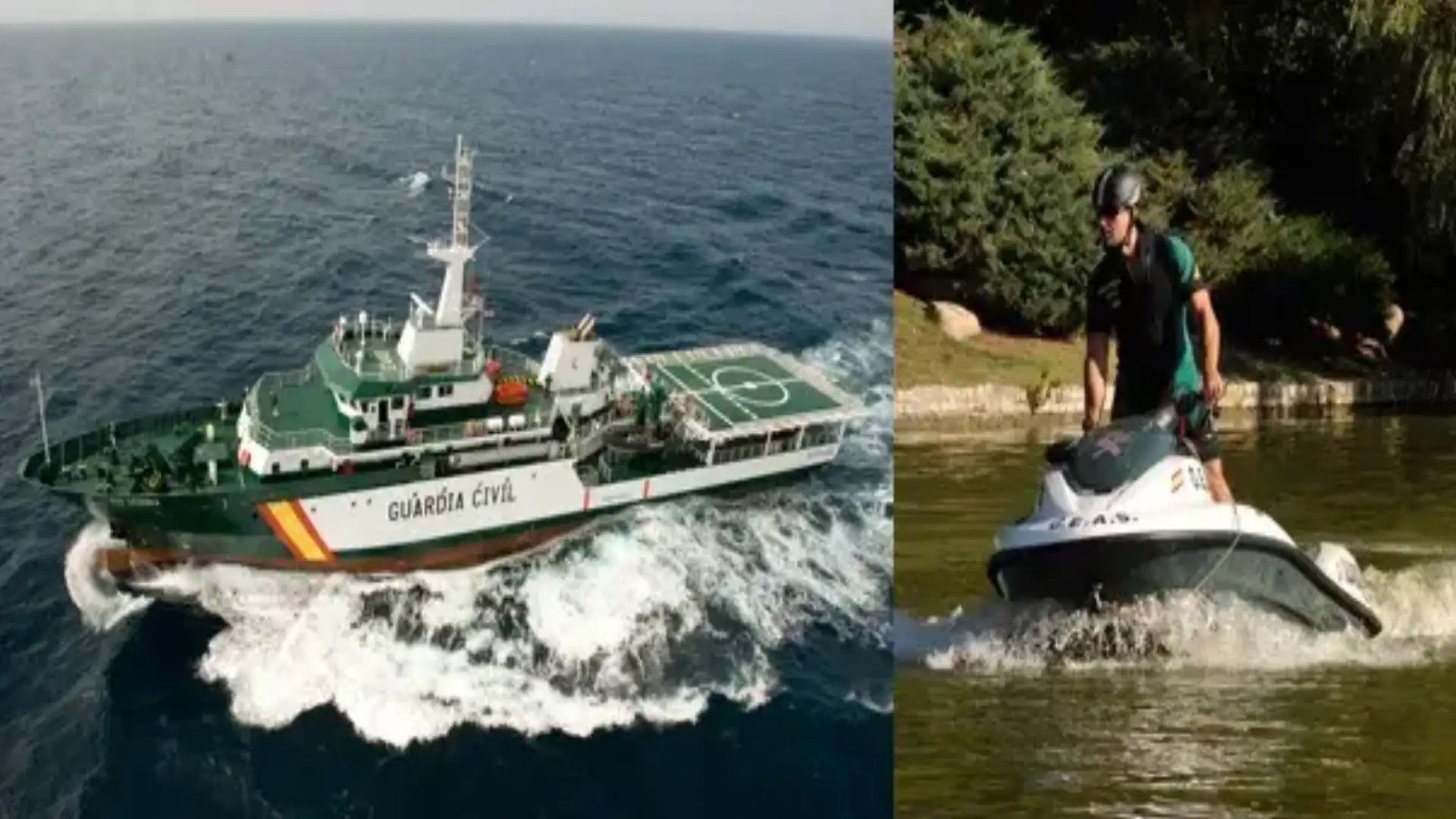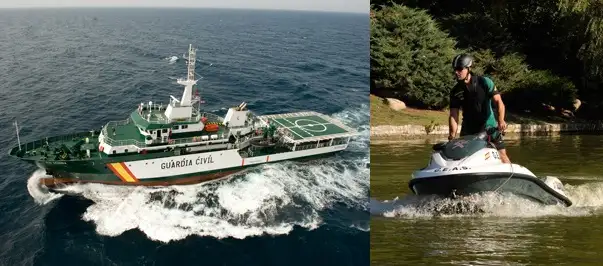
Civil Guard of the Sea: Tips for safe navigation
Civil Guard of the Sea: Tips for safe navigation
As a sports practice or form of fun, navigation on nautical bikes is subject to a regulation that we must know to avoid accidents.
Navigation in water bikes
- There are currently two types of use: private use and rental per approved company.
- For particular use, and by lease outside a rental circuit, it is required to be in possession of titling that will vary depending on the cylinder.
- The legal requirements for their use must be met: registration, compulsory insurance subscription and navigation licence.
- It is necessary to have a minimum age for use of 18 years (or 16 with the written consent of the parent or guardian).
- You must wear an approved life jacket, whether you are flying the bike or a passenger. It is recommended to wear an isothermal suit and not to separate more than one mile from the coast.
- Do not approach less than 50 metres from another motorbike, floating device, diver-signalling buoy, vessels or vessels.
- If you have problems don't separate yourself from your nautical bike. Never try to swim the coast.
- Navigation in commercial ports is prohibited except for the purpose of going from the sea to a marina installed inside or vice versa. In its interior it will not be able to navigate more than 3 knots. Nor can it be navigated in the access channels to the ports, in the fondation areas and in the areas of high concentration of ships.
General navigation
- Keep your nautical qualification and regulatory documentation up to date. Check the good condition and operation of the boat, communications and other equipment.
- Please provide information on the weather forecast of the area where it is intended to navigate by avoiding the departure in case of bad weather or poor visibility. The National Institute of Meteorology, the Telefónica Radio-coastal stations and the Maritime Rescue Centres broadcast weather bulletins on a permanent basis; contact them by phone, radio, or report to their docking port or Nautic Club.
- Always monitor the waters at the bow of the vessel; there may be swimwear, other minor vessels, fishing gear or other obstacles.
- Report of the expected date / time of departure / arrival and port of departure / destination and the characteristics of the ship in the Maritime Captains, in its Nautical Club, to family or friends.
- No more crew boarding than allowed.
- The free emergency phone (900 202 202) allows warning of a situation of danger at sea seen from the ground.
- Don't go out to sea without an anchor. In the event of a failure or a lack of fuel, it may prevent the vessel from leading to the high seas.
- Secure your boat and crew. In the event of any eventuality or if a trailer is required to have an insurance is important.
- If you are in danger, transmit the MAYDAY MAYDAY MAYDAY signal in VHF, channel 16 or telephone 2,182 kHz and activate the radiobaliza. If you need help but you are not in imminent danger emits the PAN, PAN, PAN signal on the same frequencies. In these cases the mobile phone is NOT a good choice because its scope is short and it is difficult to obtain a precise location.
If you see or receive signs from a ship in danger
- You must come quickly in your help, provided you do not endanger your own safety.
- Contact (VHF channel 16 or 2.182 Khz.) the nearest Maritime Rescue Centre or Radio and Coastal Station and contact other ships nearby.
- If you do not have communication equipment, warn other nearby vessels with distress signals. If you cannot help, go to the nearest port to report the situation.
© 2024 Nautica Digital Europe - www.nauticadigital.eu












